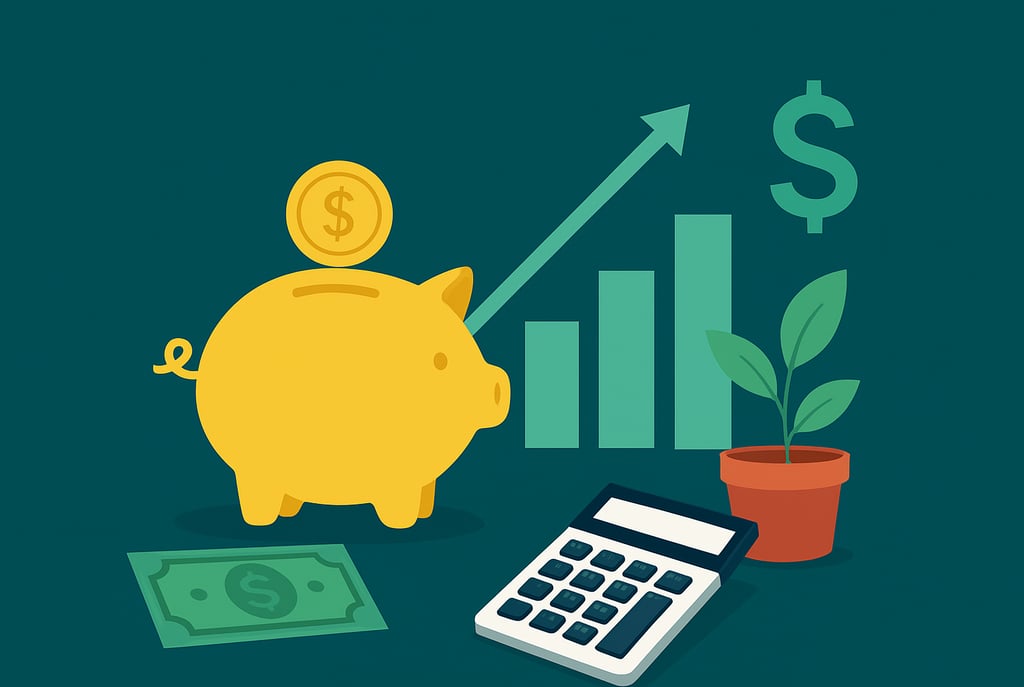Financial Habits That Will Change Your Future: How to Build Real Stability!!
Discover powerful financial habits that lead to stability, savings, and long-term wealth. Learn how to plan, budget, and invest wisely to transform your financial future.
10/21/20252 min read


Achieving financial stability isn’t about getting rich overnight — it’s about developing habits that allow you to manage your money wisely and build a secure future. Many people believe that earning more is the only path to wealth, but the truth is that even a high income can disappear quickly without discipline and planning. The secret lies in consistency, education, and smart financial behavior.
Let’s explore some key financial habits that can truly transform your life:
1. Know Where Your Money Goes
Before improving your finances, you must understand your current situation. Track all your income, expenses, and debts in detail. This awareness is the foundation of any successful financial plan.
You can use spreadsheets, apps, or even a simple notebook — the important thing is to record everything. Once you see where your money is going, you’ll start identifying unnecessary expenses and areas for improvement.
2. Create a Realistic Budget
A well-structured budget keeps your finances organized and your goals within reach. Divide your income into categories such as essentials, leisure, and investments.
A great starting point is the 50/30/20 rule:
50% for needs (rent, food, bills)
30% for wants (entertainment, comfort)
20% for savings and investments
Adjust these percentages as your financial situation evolves.
3. Build an Emergency Fund
Unexpected situations happen — car repairs, health issues, or job loss. Having an emergency fund prevents you from falling into debt when life surprises you.
Try to save enough to cover three to six months of living expenses, keeping the money in an easily accessible account like a savings account or a daily liquidity investment.
4. Avoid Impulse Purchases
Financial success depends heavily on self-control. Before buying something, ask yourself: “Do I really need this right now?”
Wait 24 hours before making a non-essential purchase — this small delay helps you make more conscious decisions and avoid regret later.
5. Invest in Financial Education
Knowledge is your greatest financial asset. Learn how money works: understand interest rates, investments, and budgeting.
Read books, follow financial blogs, and watch educational videos. The more you know, the more confident and strategic your decisions will become.
6. Set Clear Financial Goals
Goals turn dreams into concrete plans. Define short-, medium-, and long-term objectives — such as paying off debt, traveling, buying a home, or achieving financial independence.
Attach realistic deadlines and specific amounts to each goal. That way, you’ll have direction and motivation to keep going.
7. Be Consistent and Patient
Financial transformation doesn’t happen overnight. It’s the result of small, consistent actions over time. Save regularly, review your progress monthly, and celebrate your wins — even the small ones.
Remember: consistency beats intensity. A steady, disciplined approach will always win in the long run.
Conclusion:
Financial stability is not just about money — it’s about freedom, peace, and control over your future.
Start today, take small steps, and stay committed. The habits you build now will define your tomorrow.